US Reportedly Downed Iranian Drones Heading For Israel Last Month
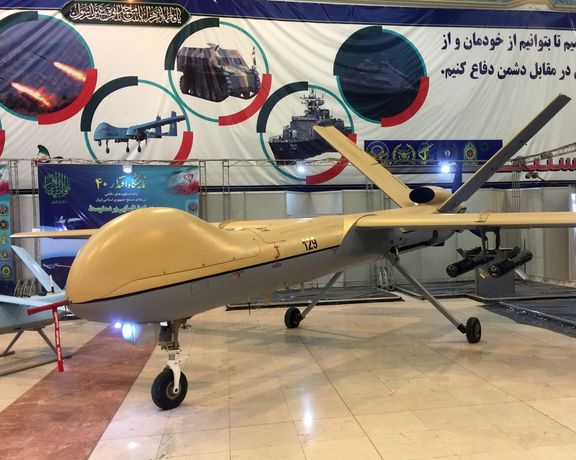
The Jerusalem Post cited Monday the defense establishment reporting that US jets on February 14 shot down near Iraq’s Erbil two Iranian drones flying towards Israel.

The Jerusalem Post cited Monday the defense establishment reporting that US jets on February 14 shot down near Iraq’s Erbil two Iranian drones flying towards Israel.
The Israeli attack was followed by an Iranian ballistic missile strike on Erbil March 13, targeting what Tehran said was an Israeli intelligence base that allegedly organized the drone strike, although an Israeli air strike in Syria that killed two Iranian soldiers may also have prompted Iran’s response.
In February the Israeli air-force said its F-35 jets had downed two Iranian Shahed-197 drones ferrying weapons for Palestinians in Gaza. The Israeli military claimed the drones, one approaching from the south and the other from the east, were brought down without entering Israeli airspace “in coordination with [un-named] neighboring countries.”
Increasing tension between Israel and Iran comes as Tehran’s talks with world powers over reviving the 2015 nuclear deal have been struggling to conclude. Israel opposed the 2015 agreement, the JCPOA (Joint Comprehensive Plan of Action), which limited Iran’s nuclear activities and removed international sanctions. For over a decade Israel has carried out attacks on the Iranian atomic program including killing scientist and drone strikes.
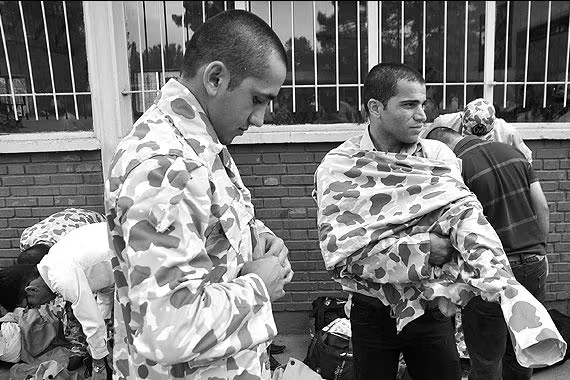
A young military conscript in southern Iran has killed four of his fellow servicemen and took another hostage, local media reported on Monday.
Mehr News Agency quoted an informed source as saying that the conscripted soldier began the killing spree in one of the barracks of the southern province of Bushehr after his request for leave was denied. Mehr News later changed its initial report, deleting the reference to the motive of the soldier, saying it is under investigation.
According to the source, the hostage was released in the port city of Deylam and the perpetrator arrested.
According to Iran’s constitution, all men over 18 years old must serve in the military for about two years otherwise they cannot apply for a passport to leave the country. Most of them are drafted into the traditional Army, but some with the right connections serve with the Revolutionary Guard where conditions are much better.
In January, Iran announced it would reinstitute a buy-out scheme for the country’s compulsory military service, but canceled plans just one day after it was reported following widespread criticism by citizens and officials.
The new fees announced for the buy-out scheme that ranged between about $10,000 and $20,000 had shocked people in Iran whose average salaries are less than $200 a month. Many social media users had slammed the decision that would only be possible for the rich to afford.
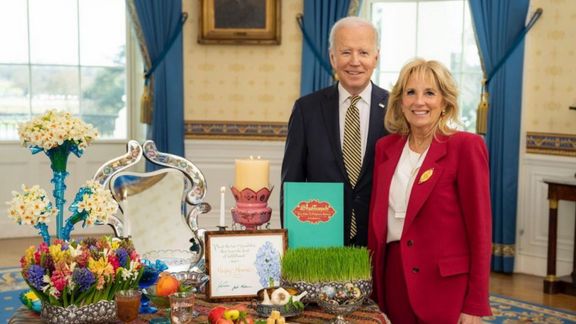
Unlike their predecessors, the US President and Secretary of State this year made no mention of Iran or the aspirations of Iranians in their Noruz messages.
In their messages, President Joe Biden and Secretary of State Antony Blinken made no mention of politics and the hostilities that have persisted for over four decades between the US and the Islamic Republic.
The White House omitted any reference to Iran at a time of sensitive negotiations to revive the 2015 nuclear deal, while a reference to freedoms and human rights was customary in previous presidential Noruz (Nowruz) messages going back to former President Barack Obama and George W Buch.
Former President Donald Trump was more direct in his messages. In 2019, he expressed dismay that the Iranian people were "unable to share fully in the joy" of the occasion and they marked the arrival of spring "under the heavy burden of the oppression of their country’s ruthless and corrupt regime.”
"In solidarity with the people of Iran, who yearn for a future of liberty, opportunity, and prosperity, the United States of America continues to condemn the dictatorial Iranian regime.We pledge never to turn a deaf ear to the calls of the Iranian people for freedom, and we will never forget their ongoing struggle for human rights," Trump told Iranians.
Referring to the literal translation of Noruz as "new day" in his message this year, the Trump Secretary of State Mike Pompeo said he prayed that a "new day", presumably regime change, for Iranians "was not far".
US Special Presidential Envoy for Hostage Affairs Roger Carstens, however, raised the issue of American citizens held in Iran in his message. Carstens said in a tweet that Baquer (Bagher) Namazi and his son Siamak Namazi, Emad Shargi (Sharghi), and Morad Tahbaz (also a UK citizen) should have been able to celebrate Noruz "in freedom and surrounded by their loved ones.”
Iranian authorities have accused the detainees, American-Iranian dual nationals, of espionage and other security related crimes and sentenced them in unfair trials without due process of law. The US says they should be freed if an agreement is reached to restore the 2015 nuclear deal between Iran and world powers, the Joint Comprehensive Plan of Action (JCPOA) but Iran insists that their case is separate from the nuclear talks.
Israeli Prime Minister Naftali Bennet's Noruz message was also politically charged and highlighted "regime change" in Iran. In a video message in English sent to Iran International TV, Bennett said he hoped Iranian and Israeli people could restore the centuries-old friendship between Jews and Iranians "in a near future" and there would be "a change in the terrible Iranian regime".
Bennett said Israel knows the vast majority of Iranians oppose the policies of “the ayatollah regime”, which spends money on “missiles, terror” rather than on their children and on education and added that he hopes there would be peace "in a short time".
The message from London, by Prime Minister Boris Johnson, was also devoid of any reference to Iran or Iranians. Instead, in a tweet Johnson mentioned "Afghan friends marking their first Nowruz here in the UK."
Without any mention of politics, the Canadian Prime Minister Justin Trudeau in his statement on Noruz and video message spoke of Noruz as a cultural event celebrated by over 300 million people around the world, including Iranian, Afghan, Kurdish and Central Asian ethnic groups as well as Zoroastrian, Baha’i, and Ismaili religious communities and the importance of the contributions that they make to Canada.
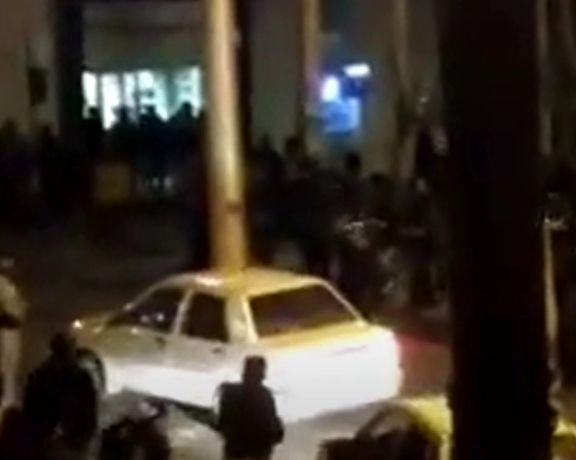
Social media users reported security forces clashing with gatherings of people celebrating Noruz (Nowruz) in the mainly Kurdish city of Oshnavieh, in Iran.
Sunday evening, special forces attacked the people of Oshnavieh in northwest Iran to prevent the celebrations from taking place. Clashes broke out when people resisted, and security forces started beating them with batons and fired tear gas.
The situation was reported tense in many Kurdish cites as residents ignored warnings by the government against celebrating the ancient Iranian New Year according to Kurdish traditions with large get-togethers involving traditional dance and music.
The Kurdish political parties, which support autonomy, are based in neighboring northern Iraq, where there has been a self-governing Kurdish entity since 1991.
For over two and half millennia, long before the advent of Islam in the 7th century, Noruz (Nowruz), which falls on spring equinox, has been marked across central Asia as far as China. Noruz literally translates as 'New Day’ but has long taken on a political significance for Kurds in Turkey, Iran, Syria and Iraq.
Iran’s oldest Kurdish party, the Kurdish Democratic Party of Iran (KDPI), supports a self-governing Kurdish entity within a federal state. Two of its leaders – Abdolraham Ghassemlou and Sadegh Sharafkandi – were murdered in Europe in 1989 and 1991, possibly on orders from Tehran.
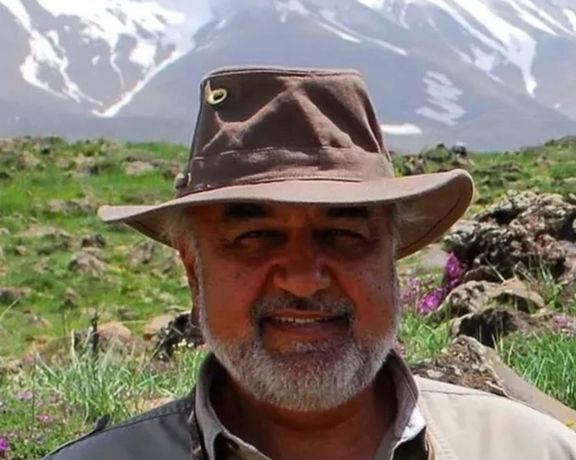
An Iranian-American environmentalist who has been imprisoned by Iran has now been moved to a residential location, Britain's Foreign Office said on Monday.
Morad Tahbaz, who also holds British citizenship and whose family say he was born in Britain, had been taken back to prison on Friday after being released on furlough on Wednesday. His sister made a plea for his release after two dual nationals were allowed to leave Iran.
The United Kingdom paid a $530 million old debt to Iran before two dual nationals were released last week and Tahbaz was also supposed to go on furlough according to the deal. He was jailed in 2018 and sentenced to 10 years on trumped-up charges of espionage, like many other dual-nationals and foreigners imprisoned by Iran.
Britain's foreign ministry said on Friday it had been told by Iran that Tahbaz, 66, had been taken back to Evin prison in order to fit an ankle bracelet and that the British government hoped he would be allowed out in coming hours.
"Morad has now been moved from Evin prison to a residential location in Tehran," a Foreign Office spokesperson said in a statement on Monday.
"We ... continue to lobby the Iranian authorities at the highest levels to allow him to return home immediately, as the Iranian government committed to doing."

US National Security Advisor Jake Sullivan has accused Iran of enabling Yemen’s Houthis to launch missile and drone attacks against Saudi Arabia.
Reacting to multiple attacks over the weekend, Sullivan issued a statement condemning the aggression against Saudi civilian infrastructure, including oil and gas, as well as water treatment facilities.
Notably, the national security advisor also pointed his finger at Iran for “enabling” the Houthis to launch such attacks.
“The Houthis launch these terrorist attacks with enabling by Iran, which supplies them with missile and UAV components, training, and expertise,” the statement read. He noted that this violates UN Security Council resolutions “prohibiting the import of weapons into Yemen.”
Sullivan’s statement came amid news reports that Washington is contemplating to remove Iran’s Revolutionary Guard (IRGC) designation as a Foreign Terrorist Organization (FTO). The Guards with their extraterritorial Qods (Quds) Force are in charge of arming and guiding Tehran’s militant affiliates and proxies in the Middle East and beyond.
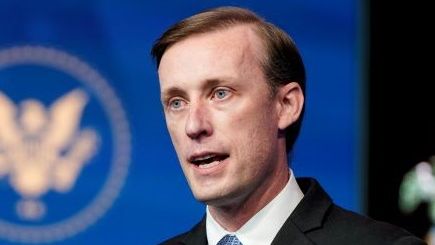
After almost a year of talks between Iran and the West in Vienna to revive the Obama-era nuclear deal known as JCPOA, it appears that the last hurdle is Tehran’s demand to have the IRGC sanctions removed. The US is reportedly seeking a guarantee that Iran would curtail the activities of its military-intelligence force in the region.
Many are skeptical about the value of any assurances by Tehran when the Islamic Republic’s core values are based on spreading its Shiite influence in the region.
Israel has voiced strong public opposition in recent days to IRGC’s ‘delisting’ as a step that would create more instability in the region. Persian Gulf Arab states are believed to have sent the same message to Washington, albeit quietly.
The Biden administration removed the Houthis from its list of terrorist organization a year ago and it did not help peace efforts for Yemen. Sullivan in his statement drew attention to Houthi intransigence.
“Saudi Arabia and the Yemeni Government have endorsed multiple UN calls for ceasefires and de-escalation over the last year. The Houthis have rejected these calls, responding instead with new offensives in Yemen and terrorist acts,” the national security advisor said.
It is noteworthy that the State Department had not issued a statement on Houthi attacks at the time of this publication.
The Wall Street Journal reported on Monday that the United States has transferred “a significant number of Patriot antimissile interceptors” to Saudi Arabia after repeated appeals by Riyadh to replenish its arsenal. The missiles have been effective in destroying most Houthi projectiles and drones.
After Russia’s invasion of Ukraine, the Biden administration has been scrambling to have Arab states supply more oil to world markets, which apparently, they still hold back. Arab producers cling to OPEC+ agreements in capping oil exports and they have not broken from Russia in their cooperation to manage supplies and prices.
One reason is also their dismay at the US policy of signing a limited new nuclear deal with Iran, which they believe will not contain Tehran’s aggressive behavior in the region.
The transfer of Patriots could be an attempt to improve the administration’s relations with Riyadh, at the same time adopting a tougher position against Houthis and Iran’s military support for them.